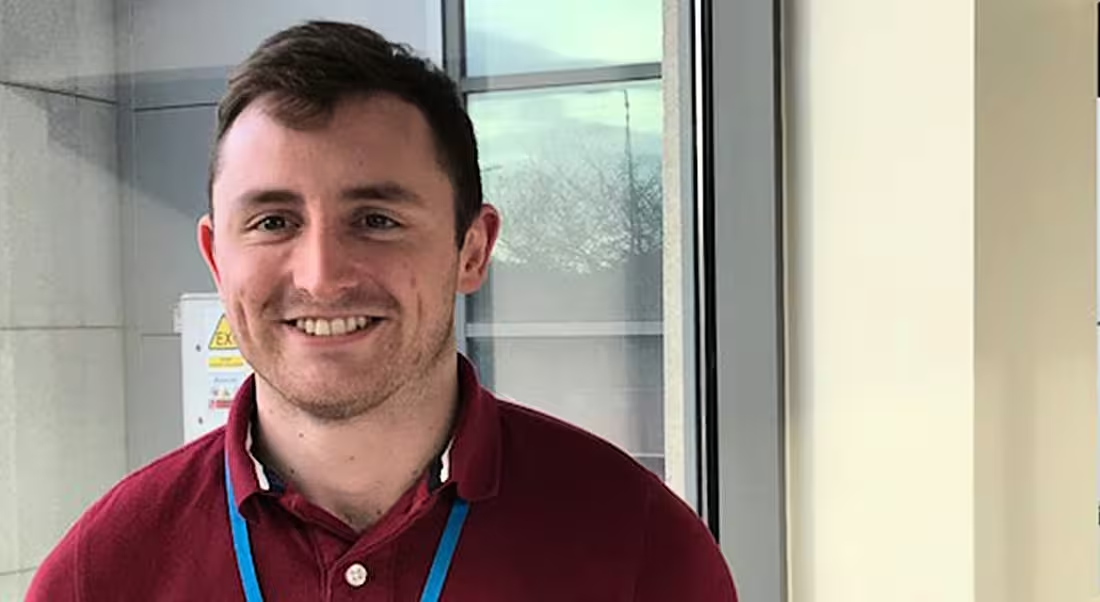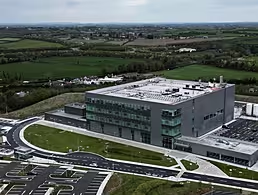After finishing his chemical engineering degree, Alan Coady set forth to find a job that could both excite and educate him. Amgen satisfied all those needs and more.
Leaving the safe enclosure of university ivory tours can be terrifying. The transition from educational institutions to working life can be, if not executed properly, a trying experience for graduates.
What do you want to do? How do you bridge the gap between your current employment and the job of your dreams? How will you know a certain company is the right fit for you?
Fortunately for Alan Coady, he had a pretty easy time transitioning from his chemical engineering degree at University College Dublin (UCD) to working on Amgen’s graduate programme.
At Amgen, Coady’s talent has been fostered in a supportive and invigorating environment. The trajectory of his development was clearly laid out, and he was able to grasp the remit of his responsibilities, and how they could be expanded and built upon with time.
Coady told Siliconrepublic.com about his experience as a graduate engineer at Amgen.
What did you study in college?
I completed a BEng in chemical engineering at UCD.
With this programme, are you now working in your desired industry?
Yes, my desire was to work in the biotechnology industry.
What drew you to Amgen when you were seeking work as a graduate?
What drew me to Amgen was the opportunity to work and gain experience in the biotechnology world with a company that is at the forefront of this industry.
What expectations did you have before you began the programme?
My initial expectations were that I would be rotated into three different departments in engineering, supporting more experienced engineers, over two years.
This would allow me to obtain a broad experience in a number of areas in engineering, while also allowing me enough time in these departments to gain valuable experience.
What duties and responsibilities were you given initially?
Initially, my workload consisted of supporting a senior engineer who was a subject-matter expert on site.
This involved gaining experience in the maintenance strategy of critical equipment, providing commercial support to manufacturing of product on site and use of analytical strategies (root cause analysis etc) in response to equipment failure.
Did the scope of your work change as the programme progressed?
As the programme progressed, and I gained more experience and knowledge of the equipment on site, I was given more responsibility.
This included leading and successfully completing projects to reduce the turnaround time on equipment during manufacturing, and qualifying new product conveyor routes in the inspection area to make the process more efficient.
Can you describe a typical day in your role?
I am now no longer involved in equipment engineering and have rotated to validation engineering.
Currently, my workload consists of qualifying new manual inspection equipment. This involves performing regular dealings with vendors, purchasing equipment, and then performing installation and operational qualification of the equipment when it is on site to ensure it meets industry standards.
How do your responsibilities compare to more experienced employees’?
My workload responsibilities have increased since the beginning of the programme but, apart from leading one or two projects at once, the remainder of my time is spent supporting more experienced engineers in their projects and day-to-day activities.
In comparison, more senior engineers can be leading between three and six projects at once while having a number of side-project progressing as well.
Do you feel more prepared for working life after completing this programme?
I definitely feel more experienced and prepared to enter working life after this programme.
I feel that the graduate programme itself offers a unique insight into a number of different departments through its rotations.
I also feel that the culture on site to offer help or guidance when needed or asked for has helped me gain a level of experience and confidence that I hope to use in the future.
Why should someone apply to the graduate programme at Amgen?
If someone is interested in joining a company that is at the forefront of the biotechnology industry, constantly improving and expanding, and has a culture of working as team to achieve a common goal, then they should apply for the graduate programme at Amgen.
The programme offers a great opportunity to gain valuable experience in a number of different areas, while working daily with extremely talented and forthcoming people in a friendly environment.




